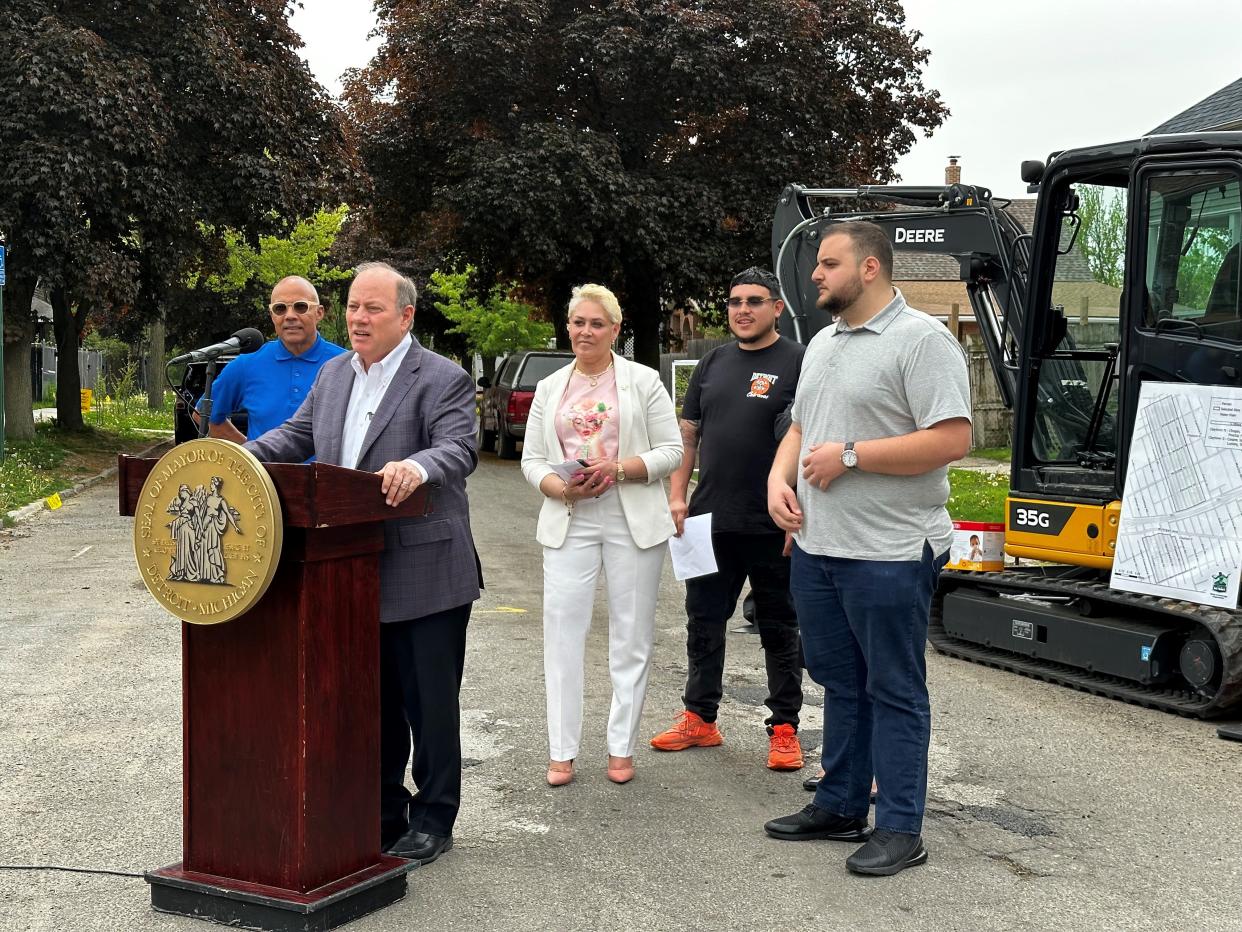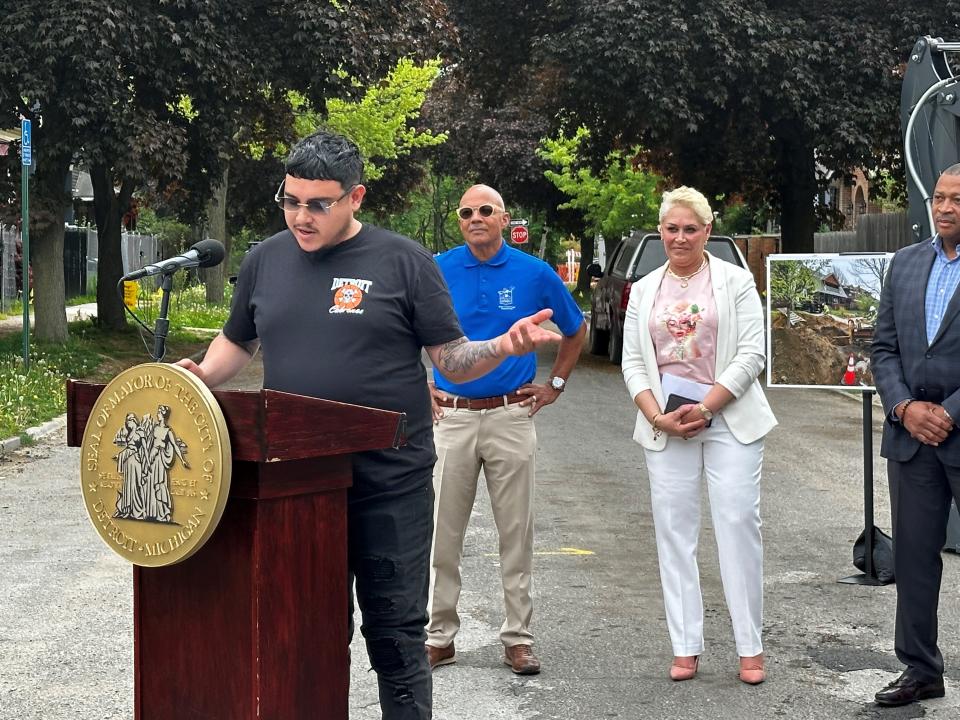Detroit to spend $80M a year to replace 10,000 lead service lines

Detroit is fast-tracking lead service line replacements this month, thanks to state and federal funding through the American Rescue Plan Act.
Mayor Mike Duggan and Gary Brown, director of Detroit's Water and Sewerage Department, on Friday in the city's Claytown neighborhood announced a plan to spend $100 million to restore lead service pipes in areas based on residences built in 1945 or earlier, a high density of children and seniors and lower incomes. This brings the city from replacing 700 lines per year to 5,000 this year, and 10,000 annually starting in 2024. Detroit has at least 80,000 lines to replace and will begin its accelerated program in Claytown, Duggan said.
"We want to maximize the number of Detroit companies doing the work and the number of Detroiters working at these companies," Duggan said. "This process is going to go on for the next 10 or 15 years, and that means there's going to be opportunities for Detroit construction companies for a decade or more to come."
The first $45 million in bids for small contractors, or smaller business, will go out by the end of the month. Small contractors will be responsible for at least 250 lines while large contractors will handle 2,500 lines, Duggan said. Medium-sized vendors will handle somewhere in between.
More: Detroit launches $8.3M program to clean up dangerous trees
Detroit remains below the state and federal action level for lead content in drinking water, Brown said. Water leaving Detroit water treatment plants, operated by the Great Lakes Water Authority, does not contain lead but can be released into drinking water from service lines and home plumbing as it moves from the water mains to the tap.
Detroit stopped allowing lead piping to be installed for service lines beginning in 1945, according to the city. Homes that were built beforehand are being prioritized for the program because they are likely to have lead pipes connecting to the water main.
Part of the endeavor is to replace service lines ahead of the state's mandated 20-year deadline, which is in 2038, according to the city. The city began extensively searching for contractors last year. Its first vendor, Five Star Energy Services, was chosen for a $25 million contract.
"We're not here because we have a problem," Brown said. "We want to go faster, but we're not going to put the cost on the backs of our hardworking Detroiters."
Brown added the entire project could cost between $800 million to $1 billion. Restoring lines, which requires excavation at the curb stop valve, can cost between $8,000 to $10,000 per house due to inflation.
The immediate $100 million includes $75 million in ARPA funding, $10 million in Michigan Drinking Water State Revolving Funds, $5 million in Environmental Protection Agency WIIN grant and $10 million from the Detroit Water and Sewerage Department's capital improvement program.
Starting next year, the city will need to accumulate $80 million annually to tackle 10,000 lines per year until the project is completed. Brown and Duggan are confident the city will acquire the necessary funds through state, federal and other sources of funding.

Emmanuel Juarez, 30, was exposed to lead when he was younger and felt his community was ignored. But the Claytown resident said he appreciates the free service in his neighborhood.
"I catch myself wishing this was done when I was younger so I could get to enjoy it but I'm really happy where we are at now ... it will be huge for our health and for seniors, and future generations. I'm glad to see the community getting this help," Juarez said. "We understand that it will be a long process, but we're ready to learn and help each other understand this lead issue. I'm actually still learning myself and as a homeowner."
Dana Afana is the Detroit city hall reporter for the Free Press. Contact Dana: dafana@freepress.com or 313-635-3491. Follow her on Twitter: @DanaAfana.
This article originally appeared on Detroit Free Press: Detroit to spend $80M to restore 10,000 water service lines annually

